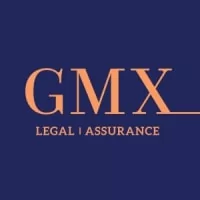Please click here to access Gauci-Maistre Xynou Legal's LinkedIn profile
The Maltese Government has introduced various measures in order to assist the stability of the Maltese economy due to the economic downturn resulting from the COVID-19 pandemic. The Tax Deferral Scheme is one of such fiscal measures. Primarily aimed at boosting business liquidity by relaxing pressure on the cash flow of businesses, it also seeks to incentivise the retention of employees.
The scheme is principally aimed at the education, hospitality and tourism, events, hairdresser and beauty, transport, and manufacturing industries. However, the fiscal incentive defines beneficiaries as companies and self-employed persons who have suffered a significant downturn in their turnover due to the economic limitations and considerable cash flow difficulties in the wake of the pandemic. In order for a beneficiary to be considered to have suffered a significant downturn, it must be shown that the beneficiary experienced a minimum 25% plunge in registered sales, which percentage estimate would be calculated on the basis of a three month period as compared with the same three month period in 2019. Nevertheless, each enterprise has a right to prove that it has suffered a significant downturn in turnover in its specific circumstance in order to benefit from the scheme notwithstanding the fact that the 25% threshold has not been satisfied.
The measures enable beneficiaries to benefit from a deferral on the payment of provisional taxes, employee taxes, maternity fund payments and social security contributions, social security contributions of self-employed persons, and VAT which fall due within March -June 2020. It should be noted that under the scheme enterprises will still be required to collect National Insurance on their employees' wages, however, the said enterprises will keep these dues for the duration of the deferral. As a result of the scheme, beneficiaries would not be charged any interest or penalties for deferring payment of the eligible taxes in accordance with the scheme.
It is advised that companies and self-employed persons who are not adversely hit by the pandemic nonetheless pay the eligible taxes by their due date, not to abuse the scheme. It is essential that enterprises who opt to benefit from the scheme keep a record of the estimates calculated.
The scheme may not be availed of by companies or self-employed persons who were in default of complying with their tax obligations falling due by 31st December 2019 to the extent that the companies or self-employed persons, as the case may be, nor by those who opted to pay VAT under the Mini One Stop Shop. Furthermore, the scheme should be forfeited in the event that the beneficiary is in breach of the terms and conditions thereof and makes use of the scheme under false pretences. As a result, the Commissioner for Revenue will order that the beneficiary settles due payments together with any applicable penalties or interest according to law.
It should be noted that the scheme is solely a deferral of tax payments, therefore the beneficiary is nonetheless obliged to submit all documents and returns which are due to be submitted in March up to and including June, by their respective due date. In order to benefit from the tax deferral scheme, one must complete and submit an online application form, as may be found on the Malta Enterprise website, by no later than 15th May 2020.
The content of this article is intended to provide a general guide to the subject matter. Specialist advice should be sought about your specific circumstances.

